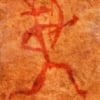Facebook and Twitter brought down a dictator. Alternative energy may yet wean us from fossil fuels. Kindles are replacing hard copies and cell phones are replacing land lines. Technology is galloping ahead and freedom is sprouting. The future—though scary—is exciting. The world is moving forward. Why waste time studying the past?
It is not a new question. Henry Ford put it simply: “History is more or less bunk. It’s tradition. We don’t want tradition. We want to live in the present, and the only history that is worth a tinker’s damn is the history we made today.” Similarly, George Bernard Shaw said, “Hegel was right when he said that the only thing that we learn from history is that man can never learn anything from history.”
The most oft-quoted reason to study history is to learn from the pastThe question occurred to me in 1989, while studying political science in France. A visiting American professor explained the fall of the Berlin Wall with two words: “Things change,” and questioned the value of academic knowledge in actual life. The same question returned recently: everyone was wrong on what could or would happen in Egypt and the rest of the Arab world. What value is the study of past when our world is so different from anything history has known, and so rapidly changing?
The most oft-quoted reason to study history is to learn from the past. As George Santayana famously put it: “Those who cannot remember the past are condemned to repeat it.” But do we actually learn from the past? Rarely, it seems. Does that mean we aren’t learning and applying the lessons well enough, or does it mean that history simply isn’t that good of a teacher? Perhaps the lessons are so many, so convoluted, so seemingly self-contradictory that they are too difficult to learn from? History’s questions sometimes seem greater than its answers.
Whatever the case, there is another, perhaps deeper, reason to learn history. Consider the words of the blind Czech historian Milan Hubl in Milan Kundera’s The Book of Laughter and Forgetting: “The first step in liquidating a people is to erase its memory. Destroy its books, its culture, its history. Then have somebody write new books, manufacture a new culture, invent a new history. Before long the nation will begin to forget what it is and what it was. The world around it will forget even faster.”
History teaches us—and reminds us—who we are. Even today, individuals are not born in a vacuum. The past explains the present. History teaches (and creates) identity—one of the great movers and motivators of humanity. I can’t understand who I am—and who the other fellow is—without understanding history.
The past also teaches about life itself. In the prologue to his A History of the Jews, (non-Jewish) historian Paul Johnson wrote that his research gave him “the chance to reconsider objectively, in the light of a study covering nearly 4,000 years, the most intractable of all human questions: what are we on earth for? Is history merely a series of events whose sum is meaningless? Is there no fundamental moral difference between the history of the human race and the history, say, of ants? Or is there a providential plan of which we are, however humbly, the agents?”
It is said that King Louis XIV of France once asked Blaise Pascal, the great French enlightenment philosopher, if there was any proof of the supernatural. Pascal anachronistically answered Johnson’s question with his rejoinder to the King: “The Jews, Your Majesty, the Jews.”
Why? Our survival against all odds, our incredible contributions to the world, the modern fulfillment of ancient prophecies . . . the Jewish story is a story of miraculous Divine intervention. Studying Jewish history, in particular, can only deepen one’s sense of wonder, mystery and purpose.
One should not get stuck in the past. We’re meant to live and build, not daydreamInterestingly, Jews were never overly fixated on history. The Torah tells us nothing of Abraham until G‑d appears to him later in life. In “Bamidbar” (“The Desert”—the Book of Numbers), the Torah skips from the spies to the death of Miriam in the portion of Chukat, 38 years later. History never seemed more than secondary to Judaism throughout the centuries. Yet that same Torah teaches: “Remember the days of old, consider the years of many generations. Ask thy father, and he will declare unto thee; thine elders, and they will tell thee” (Deuteronomy 32:7). Jewish holidays (including Purim, Passover, Sukkot and more) constantly refer to the past and its lessons, as have Jews throughout history. So is history important, or not? Helpful, or bunk?
In our age of rapid transformation, with the present quickly becoming relics of the past, perhaps we can suggest the following. One should not get stuck in the past. We’re meant to live and build, not daydream. Furthermore, history’s lessons are sometimes unclear and hard to apply. Especially as the world is rapidly progressing.
Still, understanding the past is essential to living in the present and preparing for the future. A sense of history provides context to help us better deal with the present, tools to understand ourselves and others. Understanding our national past strengthens pride and provides a sense of the mystery of transcendence about our role in the universe. People haven’t changed, and in many ways we face the same challenges that have been faced for thousands of years. As the wisest of all men, King Solomon, put it, “there is nothing new under the sun.”
Or, as Sigmund Freud once eloquently said, “Only a good-for-nothing is not interested in his past.”






Join the Discussion